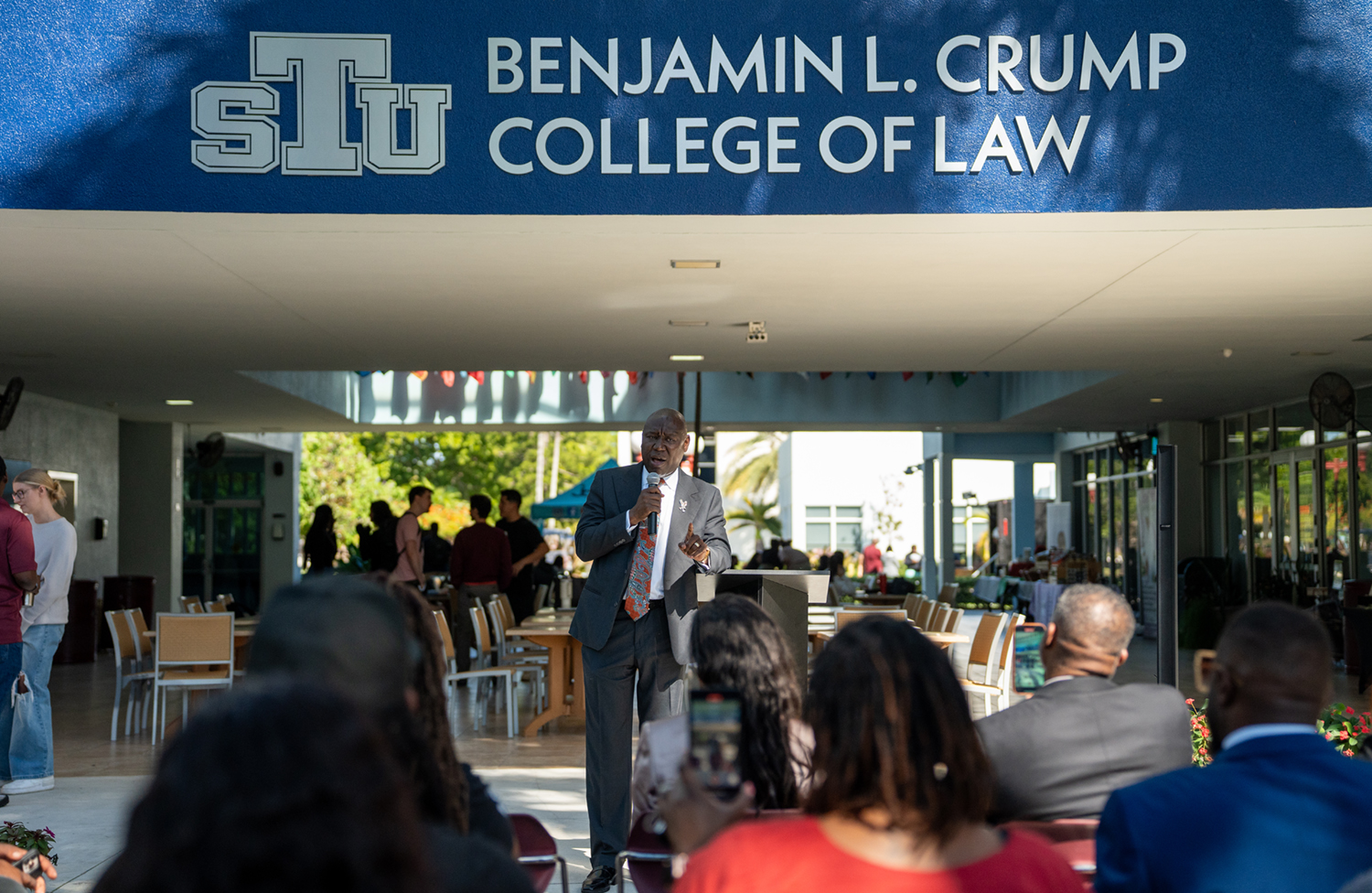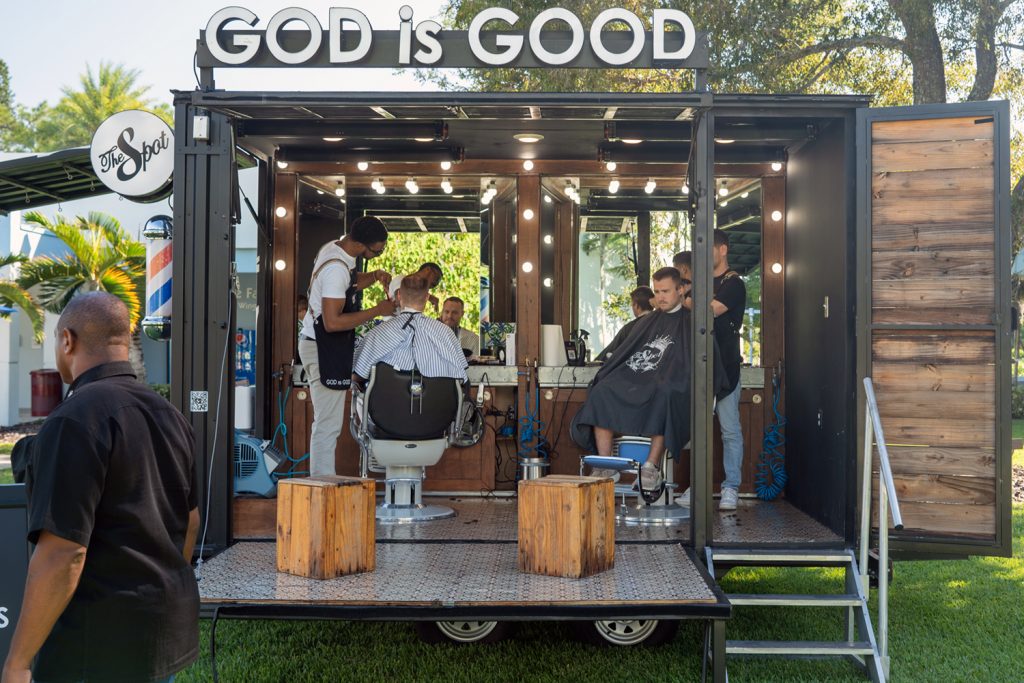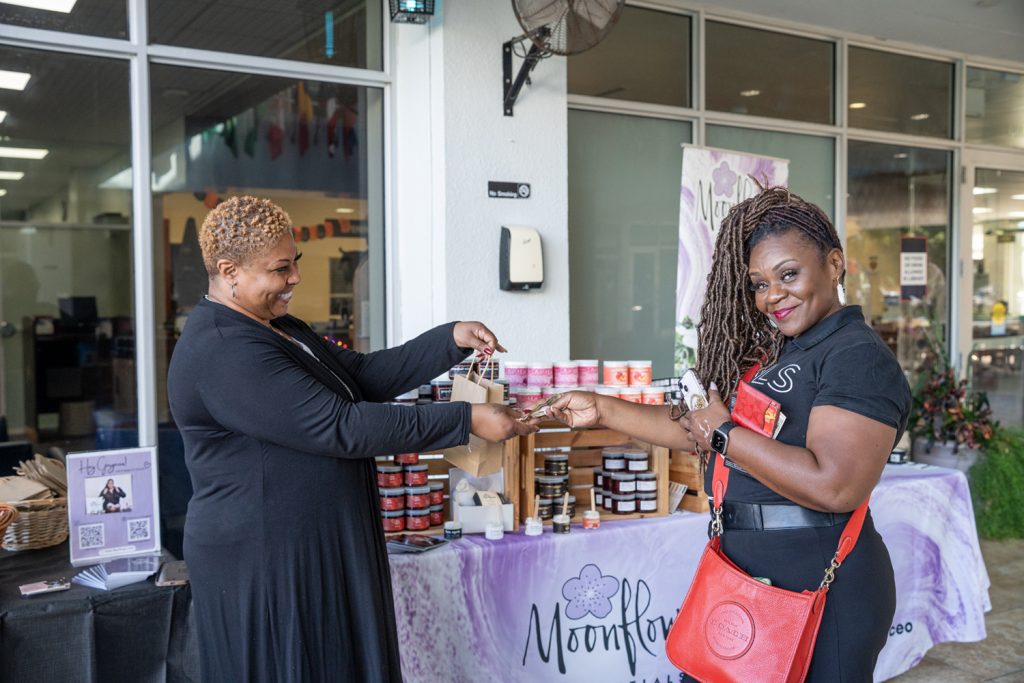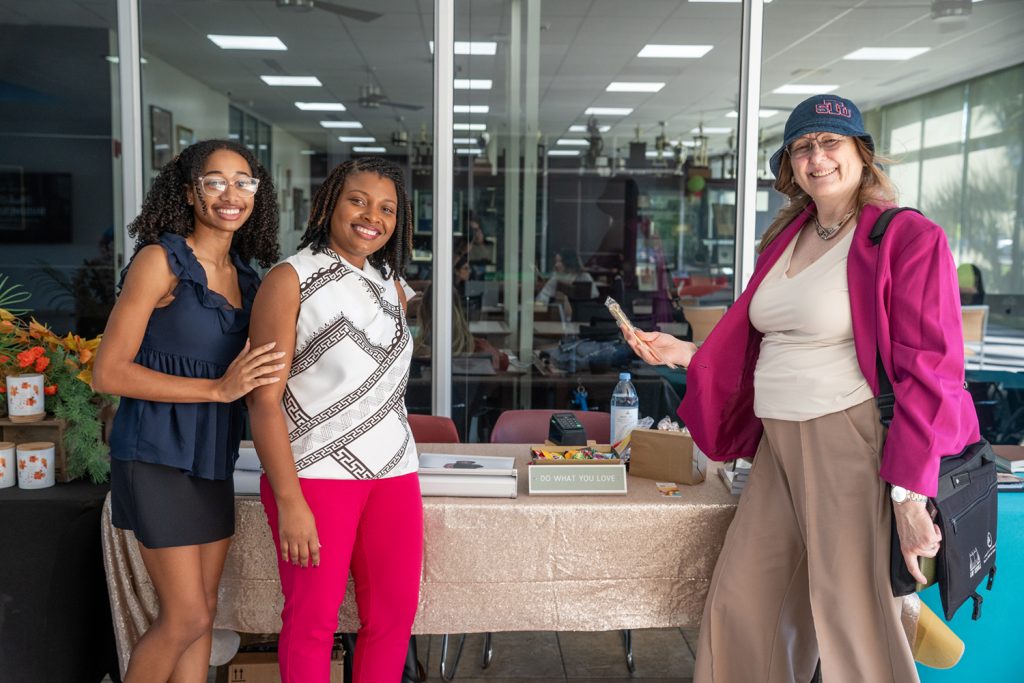
By Walter Villa, Special to STU
Home ownership is vital to closing America’s racial wealth gap.
But the key to financial independence is owning your own business.
That was the central message expressed by none other than esteemed attorney Benjamin L. Crump, the namesake of St. Thomas University’s College of Law.
Attorney Crump spoke at the first annual “Black Owned Business Fair,” held on Wednesday afternoon on the St. Thomas University (STU) campus. The fair, which was the brainchild of STU law-school student Neasha Prince, hosted a dozen local businesses.

Prince, who is also the president of STU’s Black Law Student Association, introduced the Honorable Tarlika Nunez-Navarro, the Dean of STU’s Benjamin L. Crump College of Law. Dean Nunez-Navarro, in turn, introduced Mr. Crump, who put Wednesday’s event into clear focus.
“If you want to accrue wealth in America, what you need to do is start a business, make that business successful and then either sell that business or leave it to your children,” Crump said during his 15-minute speech. “That is how you build generational wealth.
“That’s why I’m so excited to have Black businesses on this campus.”
Crump said the key for small-business start-ups is to survive that first year, which at times can be turbulent.

“That’s where we come in, us lawyers,” Crump said. “We have to help these businesses navigate the corporate-tax status and make sure they are protecting themselves from the local codes and ordinances.
“Because if that business survives a year, the research shows it will probably survive a decade. Once you have a business that survives a decade, it can change the community, and it can survive through multi generations. So, we just have to give these businesses a nudge.”
Crump said whether a business survives is based on a small mathematical margin. If they can make just 10 percent profit, they will likely survive, Crump said. But if they lose 10 percent that first year, it will be tough to stay afloat.
In addition, Crump on Wednesday spoke about the importance of Black businesses getting funding and grants similar to what happens with their counterparts.
“Black and brown women are the most founded businesses in all of America,” Crump said.

“I was raised by a single mother. I saw my mother perform miracles on a daily basis. So, I’m not surprised by Black and brown women starting businesses on a regular basis and nobody giving them credit for it and nobody investing in them like they invest in Silicon Valley.
“Black and brown women survive despite having no (outside) funding. Imagine what they could do if they had someone invest in them, fund them, or give them a start-up grant of just $25,000 or $50,000.
“Imagine what that would do when they start day cares or hair salons or food trucks or when they start selling cosmetics. These Black businesses not only survive.
“They thrive.”
An example of a Black-owned business thriving is the remarkable story of Fathiyyah “Tia” Doster, the founder of “JuiceDefined,” which she calls South Florida’s premier juice-detox company.
Doster’s backstory is fascinating.
She had a near-death experience in 2010 while giving birth to her daughter. Doster suffered kidney failure and had to go through dialysis. Finally, in 2020, she received a kidney transplant and a new lease on life.
Since then, her journey to better health has led her to juicing and the start of her own company.
“Juicing changed my life,” Doster said. “When I saw what it did for me, I had to spread the word.”
Doster, a native of Miami Gardens, opened her store in Opa-locka two years ago, and she expects to expand to another location in South Florida by 2025.
Her original location in Opa-locka was selected with a great deal of thought.
“There are no healthy eateries around our location,” Doster said. “We are providing access to a healthier option for the community — something that’s not a fast-food joint — and we’re open seven days a week.
“We’re also just two minutes away from (the STU) campus, and I know when I was in college we were eating horribly. So, it’s good to get exposure for students to know that right up the street is a place they can get healthy snacks, healthy fruits, and healthy drinks.”
Doster said she has received great feedback from her customers, including those who said they have lost weight with her products. Some have said that juicing has helped them better manage their blood pressure, Doster said.
The process for her juicing is simple.
“We take fruits and vegetables and put them through a cold-pressed juicer, which keeps all the nutrients intact so that it’s more effective for the body,” Doster said. “It helps you cleanse your body.”
Among the other merchants who participated in STU’s Black Owned Business Fair were:
– All Dolled Up is a premier hair salon specializing in natural hair care.
– Conquer Network is a supportive online network for entrepreneurs to get their mental health in alignment with their business and home life.
– Diamond Destinations, which serves groups looking to travel for family gatherings and special events.
– Ebene Naturals offers plant-based hair, skin, body, and home-care products. Each product curated by Ebene is made by hand.
– Intromatic Moves, which assists “with all your relocation needs,” providing reliable and precise deliveries.
– Lavie Stylez, a trendy and stylish online boutique that provides apparel for women who love fashion.
– Moonflower Essentials by Mary Reign specializes in products that promote self-care such as hand-made soaps, body butter and candles.
– Place of Aroma provides luxury concierge services, elevating experiences through the art of sensory marketing.
– The Spot Barbershop, which offers classic grooming services – think hip haircuts and hot-towel shaves — in a modern setting. The Spot offered free haircuts at Wednesday’s event.
– Twin Dragon Hibachi is a family-operated food truck specializing in Asian fusion culinary delights.

